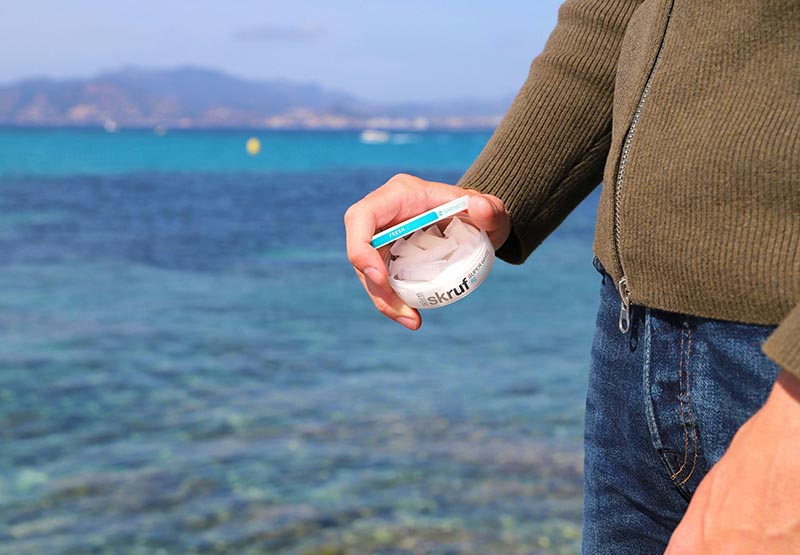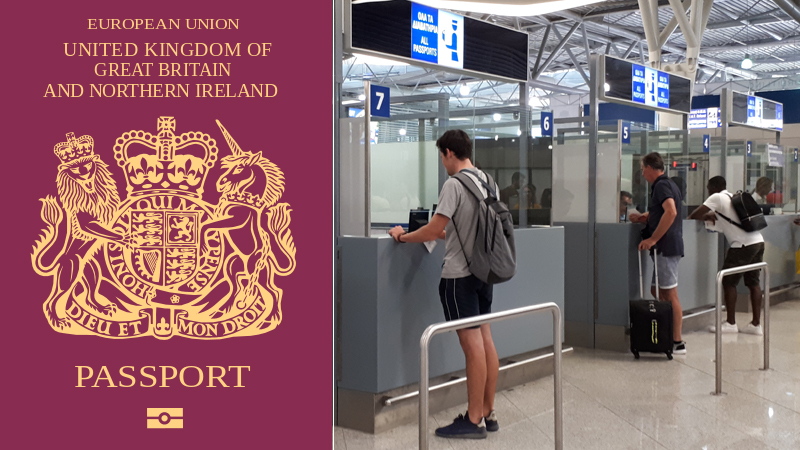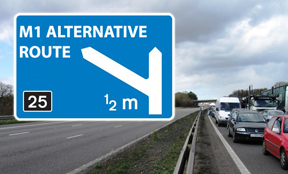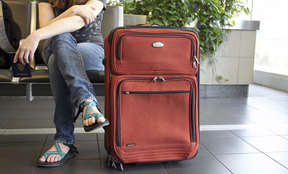
France has become one of the first European countries to impose a total ban on oral nicotine pouches.
The controversial move, which officially came into effect on May 26, 2025, has sparked angry debate across public health circles, the tobacco industry, and among British travellers heading to France.
Here we look at what the ban could mean, who it affects, and what you risk if you ignore it.
 Taking nicotine pouches to France? Read this first
(Credit: Swenico/Unsplash)
Taking nicotine pouches to France? Read this first
(Credit: Swenico/Unsplash)
What are nicotine pouches?
Nicotine pouches are small, white, smokeless sachets that deliver nicotine without tobacco. Placed under the lip, they are marketed as a cleaner, less harmful alternative to cigarettes and vapes.
Many brands are particularly popular in the UK and Scandinavia, where they are often used as tools to quit smoking.
However, their rise in popularity – especially among teens and non-smokers – has led to growing concerns from public health experts.
Why has France banned nicotine pouches?
The French government announced its intent to ban all oral nicotine products in early 2025, citing serious health concerns. The new law defines banned products as “nicotine-containing substances intended for oral use” – covering pouches, gums, lozenges, pearls, and liquids.
According to French Health Minister Geneviève Darrieussecq, the products are highly addictive and particularly appealing to young people due to their flavoured varieties and discreet use. Poison control centres also reported a rise in nicotine poisoning cases, particularly among children.
To protect public health, especially minors, the government invoked Article L.5132-8 of the French Public Health Code, which allows for the prohibition of substances deemed harmful outside medical use.
What does the ban cover?
The ban prohibits:
-
Production
-
Import and export
-
Sale and distribution
-
Possession and use
This applies across mainland France and all overseas territories. Even personal possession of nicotine pouches can now lead to legal trouble.
What are the penalties?
The penalties for breaking the new law are severe:
-
Up to five years in prison
-
Fines up to €375,000
To put that in context, possession of heroin in France carries a maximum penalty of one year in prison and a €3,200 fine. This means nicotine pouches are now legally treated more harshly than Class A drugs.
What has the response been?
The French Council of State advised against the ban, arguing it might be disproportionate and could harm tobacco harm-reduction strategies. Despite this, the government proceeded.
Industry groups, including British American Tobacco, criticised the move, saying pouches offer a less harmful alternative to smoking and could support public health goals by helping people quit cigarettes.
Sweden – a major exporter of nicotine pouches – has formally objected to the law, claiming it violates EU free trade principles and lacks scientific justification. The European Commission may delay or even block the implementation pending review.
What could this mean for Brit travellers heading to France?
If you're travelling to France – even just passing through – it is now illegal to carry nicotine pouches, regardless of whether they were legally purchased elsewhere.
This could catch out British tourists especially. With the UK banning disposable vapes from June 1, 2025, many smokers and vapers are switching to pouches as an alternative. But bringing them into France now carries real risk – including potential jail time and massive fines.
In conclusion...
France’s ban on nicotine pouches marks a major escalation in Europe’s approach to nicotine regulation. While the government frames it as a health-first policy, critics warn it could drive users to more dangerous habits or an underground market.
It could also leave British travellers open to large fines - or potentially jail time - if they are not up to date with this new law when heading across the Channel to France.
For now, anyone planning to visit France should leave their pouches at home – or potentially face serious legal consequences.
Subscribe for free motoring and travel news here - support independent journalism
Most read travel content
Take a look at more of our top travel-related news and guides here...
-
Do I need six or three months on my passport for Spain, France and other EU countries?
-
Who can sign my passport photo... can teaching assistants sign for kids?
-
Can I carry medication on a plane - what the airlines and airports say
-
How do UK airlines keep their planes germ-free?
-
How much are fast-track security lanes at UK airports and how to book them
-
Where do I pack my vape when flying? What the airlines say
-
Can my child fly if they have chicken pox? What the airlines say
-
Can I catch monkeypox on a plane - what are the risks?
-
Full list of European countries that use the euro - and those that don't
-
What does SSSS on your boarding card mean and should you be worried?
-
Do I need a V103 certificate to drive my car abroad?
-
Do I need a new passport now I have put on weight, dyed hair, gone bald etc?
-
Get a driving licence check code for your holiday hire car
-
Find the cheapest petrol near motorways in France - interactive map
-
Are there any free drop-off points at UK airports?
-
How much does a new passport cost now we've left the EU?
-
How much are speeding fines and other driving offences in Spain? And will points go on my UK licence?
-
Can I change a name on a plane ticket and how much will it be?
-
The new speeding camera in France that 'catches everyone' - Nano Parifex revealed
-
Can I fly with a broken leg or other bone?
-
Is it possible to catch monkey pox on a plane?
-
How much are extra legroom seats on your flight - revealed here
-
Where can I charge an electric car at UK airports?
-
What airlines have defibrillators on their planes
-
What help is there for travellers with autism at UK airports?
-
Do I need to get a new passport if I move home?
Author: Pete Barden:
Twitter: @pete_barden
Pete Barden is a qualified journalist who has written and produced for publications including The Sun (thesun.co.uk), New Statesman Media Group, Whatcar? (Whatcar.com) Stuff Magazine (Stuff.tv), Fastcar Magazine (Fastcar.co.uk), Maxim Magazine and UK broadcast stations within the Heart network (Formerly GCAP). Pete specialises in motoring and travel content, along with news and production roles. You can find out more about Pete Barden on LinkedIn.











